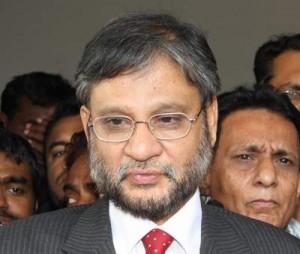Washington, Mar 26: Indian-American hoteliers have come forward to rescue the stranded Indian students in the US following implementation of lockdown measures in the country in response to the rapidly-spreading coronavirus pandemic, offering them free accommodation and free meals.
With the students scrambling for a roof over their heads after being asked to vacate their hostels and India banning international flights for a week from March 22 due to the coronavirus pandemic, more than 6,000 rooms in nearly 700 hotels were offered to them by Wednesday following a call from the Indian Embassy.
The Indian Embassy have been running a round-the-clock helpline since last week for the students in the US, who number over 2,50,000.
Most of these hotels offered are in and around universities and colleges, but the hotel owners from across the country have come up in large numbers to the call given by community leaders, who have roped in Asian American Hotel Owners Association (AAHOA) for the purpose.
India's Ambassador to the US Taranjit Singh Sandhu said in a tweet, "It is heartening to see that Indian; Indian-American and other hotel owners are coming forward to help people with accommodation in these testing times. Together we can overcome the fight against COVID19!"
"The Indian community has come together to help the student and many hotel owners have offered their rooms free of cost to them. Many of them are also offering free meals to these students," Chicago-based community leader Nirav Patel told PTI.
Indian-American hotelier couple K K Mehta and Chandra Mehta have offered more than 100 rooms to Indian students at their two prime properties each near the Times Square and Barclays Center in New York City, said Jaipur Foot USA chairman Prem Bhandari on behalf of the hotels.
The Indian Consulate in New York had contacted them about this 10 days ago, he said.
"These students are the future of both India and the United States. All the top Indian-American CEOs, scientists and doctors came to this country as a student. It's our moral duty to help them with our resources," Bhandari said.
Regional director of AAHOA Upper Midwest Kalpesh Joshi said they had created a master list of the availability hotel rooms, which was being constantly updated.
Free accommodation would be allocated in coordination with the Indian Embassy and its consulates, he said.
"The Indian Embassy and its consulates are working tirelessly to get these students rooms," he added.
Joshi has also sent out a video message to his hotelier colleagues: "Because of the coronavirus outbreak, our Indian students in the US are out of shelter. Let's work together. As a hotelier, I would like to request all my hotelier friends to come forward... let's provide some rooms to the students."
Boston-based Computer Society of India (North America) has collaborated with AAHOA to help students and Indian IT professionals searching for emergency accommodation due to the COVID-19 lockdown.
Anyone who is having financial hardship will be given hotel accommodation either free of cost or the rates will not be more than USD 50, said the Computer Society of India (North America).
Minesh Patel, the chairman of Virginia Asian American Store Association, said between Richmond, Norfolk, and Virginia Beach, Indian-American hotel owners can help in arranging accommodation for over 500 Indian students.
Florida-based Vipul Patel, the national president of Asian American Store Owners Association, said support for the Indian students have been pouring in from the Indian-American hoteliers.
"I have not come across any hotel owner who said no to us," Patel said.
Rooms would be allocated to students on the recommendation of the Indian Embassy and its consulates in Houston, Chicago, Atlanta, San Francisco and New York.
The Indian Consulate in New York was the first to take a lead in this regard. It has worked with Hammock Worldwide Hotels and Resorts to provide temporary accommodation for the students at a flat rate of USD 50 per night.
Joshi said that initially there was a suggestion to charge a convenience fee of USD 20-25 per day from the students.
"But when a few of them offered free rooms and free meals, everyone agreed to it," he said.
According to Johns Hopkins University coronavirus tracker, the number of deaths caused by the novel coronavirus in the US rose to 1,031 with 68,572 confirmed cases. The US has the third highest number of confirmed cases behind China and Italy.
 Dhaka, Dec 18: From the fourth floor of a house in Dhaka's Dhanmondi locality, the Jamaat-e-Islami Tuesday opened doors for communication with India, even as its activists lead violent protests across the country over their leader Abdul Quader Mollah's execution last week.
Dhaka, Dec 18: From the fourth floor of a house in Dhaka's Dhanmondi locality, the Jamaat-e-Islami Tuesday opened doors for communication with India, even as its activists lead violent protests across the country over their leader Abdul Quader Mollah's execution last week.




Comments
Add new comment